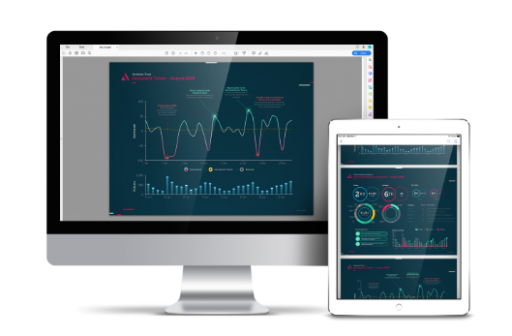Horizon scanning for ESG issues in the pharmaceutical sector
Pharma firms cannot rest on their laurels when it comes to ESG issues – the manufacture of life-saving products does not make them immune from reputational risk due to unsustainable business practices. To neutralise negative ESG reporting, pharma leaders need to understand their present and future ESG position.
ESG issues and reputational risk for big pharma
The healthcare industry, and pharma firms in particular, have an emerging reputational challenge. In addition to ongoing criticism around medicine price points and business ethics, their role in creating life-saving products is being weighed against the environmental impact of their manufacturing processes and how socially responsible their business models are.
From consumers and shareholders to campaign groups and regulators, both primary and secondary stakeholders’ attention is turning on environmental, social and governance (ESG) performance alongside health outcomes. A recent report by Fierce Pharma outlines how ESG accountability is the new yardstick by which investors and consumers judge pharma companies. It ranks a global top 10 by issues including diversity and inclusion, community relations, waste management and product safety.
The healthcare sector’s ESG challenge is illustrated by recent reporting of the contradiction in pharma giant GlaxoSmithKline’s business model. An article in the Financial Times in September 2021, titled ‘GSK’s life-saving medicine is helping to kill the planet’ revealed that almost 40% of the company’s carbon emissions arose from the manufacture of asthma inhalers. Damaging the environment by creating products to help people breathe is a conflict of principles that quickly built into an ESG issue for the company.
Analysis by alva of the sentiment surrounding the FT article lays bare the impact of sustainability issues for the pharma sector as a whole, demonstrating that ESG performance directly moulds the reputation of companies based on the material issues for the sector.
The six-month analysis of content from 118 countries tracked the reputational fallout of the original FT article. ESG issues surfaced as the sixth most relevant topic for GSK in this period, with negative coverage attached to business ethics, governance, patient health and safety, and environmental sustainability, the latter tied to greenhouse gas emissions created by inhalers. Consumers, capital markets and campaigners all engaged, and the combined stakeholder perception of GSK’s ESG position remained negative throughout the six months, creating significant reputational risk exposure.
Mitigating reputational risk with ESG initiatives
Conversely, positive strategies have the potential to improve reputation, as big pharma accelerates its ESG efforts. For some, success in formulating and distributing vaccines at the height of the Covid pandemic was a positive first step, epitomised by AstraZeneca’s pledge to provide vaccines to low income countries on a non-profit basis.
The GSK case study pinpoints specific initiatives, particularly around environmental and sustainability issues, being used by pharma firms to promote their ESG credentials – targeting net-zero, renewable electricity transitions, recycling schemes and tree planting.
Pfizer has signed a 15-year power purchase agreement with a US renewables developer to supply 100% of its North American electricity needs from solar. Meanwhile, Novartis is working towards health equity and increased access to medicines, plus net-zero across its value chain. In the UK, AstraZeneca has committed £1.9m to planting trees in England and Scotland, and plans to plant 50 million more around the world. And Novo Nordisk’s PenCycle scheme is helping diabetes sufferers recycle single-use insulin injection pens.
Such initiatives work. The positive sentiment attached to reporting promises a means to counter reputational risk. ESG Intelligence from alva shows access to medicine having a strong positive impact on overall ESG score for the pharma sector, with six in 10 of the major companies analysed generating positive discussion around the issue. Environmental sustainability is another high scoring topic, attracting overall positive sentiment.
Managing stakeholder perception of ESG activity
But such initiatives must be meaningful. Stakeholders will not be appeased by greenwashing or good intentions. For example, alva’s research shows that, following on the heels of the FT article, GSK’s pledge to join other top pharma companies in aligning on the Race to Zero campaign was insufficient to uplift stakeholder perception of its ESG position.
In stakeholders’ perceptions, ESG has moved from the periphery to the core. A 2021 poll by Global Data revealed that 43% of respondents felt environmental factors were the area pharma firms most needed to focus on, with climate change and pollution causing greatest concern.
The impact of ESG issues on sentiment among stakeholders is also no longer limited to secondary influencers. Alongside NGOs, local communities and single-issue interest groups, primary stakeholders want pharma firms to be transparent and accountable for their business practices. This stakeholder pressure is pushing the reputational risk attached to ESG higher up the board agenda. To mitigate it, they need to make authentic statements of intent, followed up by deliberate action, and measure the results.
Horizon scanning allows pharma leaders to surface the incoming ESG issues before they impact, and neutralise their impacts through positive behaviours. By weighing multiple ESG factors and resulting stakeholder sentiment, alva’s GSK report underlines the value of using quantitative metrics to identify the drivers and actors in ESG issues, and model likely outcomes. For the healthcare sector, ESG risk can arise at pain points all along the line from the supply chain to patient experience, and needs to be identified and depowered before reputational damage occurs. To do this, business modelling must be based on actionable intelligence around ESG issues.
Be part of the
Stakeholder Intelligence community









